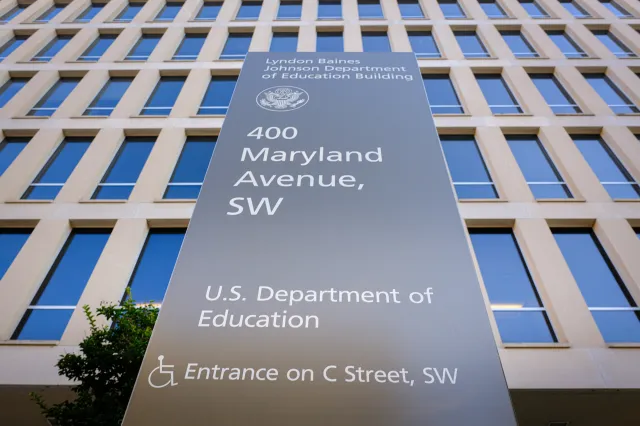The U.S. Department of Education (DOE) has updated which majors fall under its definition of “professional” degrees, and student loans could be affected in the long term.
Under the revamped definition of “professional degree” programs, nursing and other key health care jobs have been excluded, triggering financial concerns for many.
Why It Matters
The changes are a result of President Donald Trump’s One Big Beautiful Bill Act. Since Americans hold nearly $1.8 trillion in student debt, these reclassifications could change who is able to apply and qualify for certain aid or debt programs.

What To Know
Under Trump’s fiscal plan, undergraduate loans are capped, and the GRAD PLUS program is eliminated. There’s also a new Repayment Assistance Plan, but only students pursuing a “professional” degree can borrow up to $50,000 per year.
Because of this stipulation, there are long-standing consequences for those in majors and degrees not deemed “professional” by the DOE’s new framework.
The fields determined as “professional” by the DOE now include:
- Medicine
- Pharmacy
- Dentistry
- Optometry
- Law
- Veterinary medicine
- Osteopathic medicine
- Podiatry
- Chiropractic
- Theology
- Clinical psychology
Nurse practitioners, physician assistants and physical therapists are all excluded from the list.
The revised classifications will result in graduate nursing students no longer having the same financial benefits for professional degree programs, potentially deterring students from entering the field.
“The main degree that was impacted and is at the forefront has to be nursing. This may resurrect access to certain funding that was once provided for nursing,” Kevin Thompson, CEO of 9i Capital Group and host of the 9innings podcast, told Newsweek.
Newsweek also reached out to the DOE for comment via email.
What People Are Saying
The American Association of Colleges of Nursing (AACN), in a statement: “Excluding nursing from the definition of professional degree programs disregards decades of progress toward parity across the health professions and contradicts the Department’s own acknowledgment that professional programs are those leading to licensure and direct practice. AACN recognizes that explicitly including post-baccalaureate nursing education as professional is essential for strengthening the nation’s healthcare workforce, supporting the next generation of nurses, and ultimately supporting the healthcare of patients in communities across the country.”
Alex Beene, financial literacy instructor for the University of Tennessee at Martin, told Newsweek: “The change for degrees like nursing and education to be non-professional has stoked concerns that are both financial and job-need based in nature. With some of these majors no longer being classified as professional, that will also put a lower cap on the amount of loans aspiring students can qualify for when applying.”
Thompson also told Newsweek: “This is a conversation that needs to be addressed. Our population continues to age and skilled nurses are a necessity. If this is not rectified immediately, the amount of nurses will decline causing pain in our healthcare system. For me, this is not a good.”
What Happens Next
The new rules under the DOE are set to go into place on July 1.
In the long run, experts say, they could end up causing fewer students to enter these professions entirely. For health care fields like nursing, the revisions could be especially harmful pertaining to labor shortages.
“This could trigger a chain reaction, as fewer loans could translate to less students going into these professions, many of which are already plagued with nationwide shortages,” Beene said.

